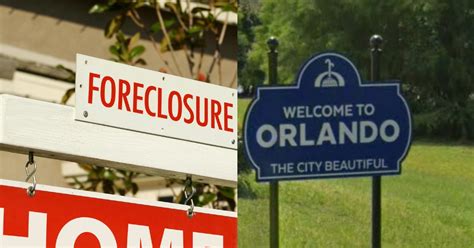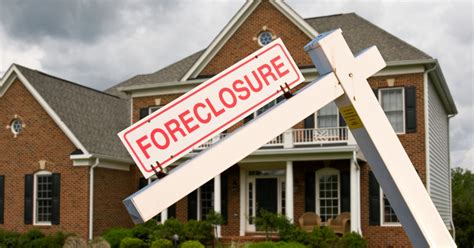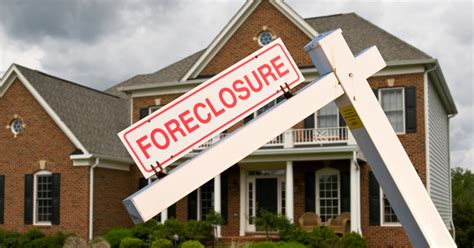
Cape Coral-Fort Myers, Florida, has emerged as the nation’s foreclosure hotspot, leading the United States in foreclosure rates due to a combination of factors including the aftermath of Hurricane Ian, population growth, and economic pressures on homeowners.
Cape Coral-Fort Myers, Florida, has the highest foreclosure rate in the United States, driven by a confluence of factors that have created a perfect storm of financial hardship for homeowners. According to recent data, one in every 1,887 housing units in the metro area is in foreclosure, significantly outpacing other regions across the country. The surge in foreclosures can be attributed to several key factors, including the lingering effects of Hurricane Ian, rapid population growth that has strained housing affordability, and broader economic challenges that are impacting homeowners’ ability to meet their mortgage obligations.
Hurricane Ian’s Devastating Impact
Hurricane Ian, which struck Southwest Florida in September 2022, left a trail of destruction that continues to reverberate throughout the region. The storm caused widespread damage to homes and infrastructure, leaving many residents displaced and financially vulnerable. The recovery process has been slow and arduous, with many homeowners still struggling to repair or rebuild their properties.
“The widespread devastation caused by Hurricane Ian is a major contributor to the foreclosure crisis in Cape Coral-Fort Myers,” said a local real estate analyst. “Many homeowners were already financially stretched before the storm, and the added burden of repair costs and lost income has pushed them over the edge.”
The storm not only damaged physical structures but also disrupted the local economy, leading to job losses and reduced income for many residents. This has made it increasingly difficult for homeowners to keep up with their mortgage payments, resulting in a surge in foreclosure filings. Insurance payouts have been delayed or insufficient in many cases, exacerbating the financial strain on homeowners.
Rapid Population Growth and Housing Affordability
Cape Coral-Fort Myers has experienced significant population growth in recent years, driven by retirees and individuals seeking a lower cost of living compared to other parts of the country. While this influx of new residents has boosted the local economy, it has also put immense pressure on the housing market, leading to soaring home prices and rents.
The rapid increase in housing costs has made it increasingly difficult for both existing residents and newcomers to afford housing. Many homeowners have taken out mortgages that are disproportionately high relative to their income, leaving them vulnerable to financial shocks such as job loss or unexpected expenses.
“The combination of rising home prices and stagnant wages has created a housing affordability crisis in Cape Coral-Fort Myers,” explained a local economist. “Many families are simply unable to keep up with the rising cost of living, and foreclosure is becoming an increasingly common outcome.”
The demand for housing has outstripped the supply, driving up prices and rents to unsustainable levels. This has disproportionately affected low- and middle-income families, who are struggling to find affordable housing options. As a result, many homeowners are finding themselves underwater on their mortgages, meaning they owe more than their homes are worth.
Broader Economic Challenges
In addition to the specific challenges facing Cape Coral-Fort Myers, broader economic factors are also contributing to the foreclosure crisis. Rising interest rates, inflation, and economic uncertainty are all putting pressure on homeowners across the country, and Cape Coral-Fort Myers is particularly vulnerable due to its high concentration of retirees and residents with fixed incomes.
The Federal Reserve has raised interest rates aggressively in recent months in an effort to combat inflation, making it more expensive for homeowners to borrow money. This has led to higher mortgage payments and has made it more difficult for homeowners to refinance their loans.
“The Federal Reserve’s interest rate hikes have had a significant impact on the housing market in Cape Coral-Fort Myers,” said a mortgage broker. “Many homeowners are now struggling to afford their mortgage payments, and we are seeing a surge in requests for loan modifications and other forms of assistance.”
Inflation is also eroding the purchasing power of homeowners, making it more difficult to afford basic necessities such as food, gas, and utilities. This is putting additional pressure on homeowners’ budgets and making it more difficult to keep up with mortgage payments.
Government and Community Responses
In response to the growing foreclosure crisis, local and state governments, as well as community organizations, are implementing various programs and initiatives to assist homeowners. These include foreclosure prevention counseling, financial assistance programs, and legal aid services.
The Florida Housing Finance Corporation offers several programs to help homeowners avoid foreclosure, including mortgage assistance programs and down payment assistance programs. These programs provide financial assistance to eligible homeowners who are struggling to make their mortgage payments.
Local community organizations are also playing a crucial role in helping homeowners navigate the foreclosure process. These organizations offer foreclosure prevention counseling, which provides homeowners with information and resources to help them understand their options and avoid foreclosure.
“We are working closely with homeowners to help them understand their rights and explore all available options,” said the director of a local housing counseling agency. “Our goal is to help homeowners stay in their homes and avoid the devastating consequences of foreclosure.”
The Long-Term Outlook
The foreclosure crisis in Cape Coral-Fort Myers is likely to persist for some time, as the region continues to grapple with the aftermath of Hurricane Ian, rapid population growth, and broader economic challenges. However, with the implementation of effective government and community programs, there is hope that the situation can be mitigated and that homeowners can be provided with the support they need to stay in their homes.
The long-term outlook for the housing market in Cape Coral-Fort Myers is uncertain, but experts predict that it will take several years for the region to fully recover from the current crisis. The demand for housing is likely to remain strong, but affordability will continue to be a major challenge.
“The housing market in Cape Coral-Fort Myers is undergoing a significant transformation,” said a real estate market analyst. “The region will need to address the challenges of affordability and sustainability to ensure that it remains a desirable place to live for all residents.”
Frequently Asked Questions (FAQs)
-
What are the main reasons Cape Coral-Fort Myers is leading the US in foreclosure rates?
The high foreclosure rate in Cape Coral-Fort Myers is primarily due to the combined effects of Hurricane Ian’s devastation, rapid population growth leading to housing affordability issues, and broader economic challenges like rising interest rates and inflation. The hurricane caused widespread damage, leaving many residents financially vulnerable. The influx of new residents has strained the housing market, driving up prices. Economic pressures, such as rising interest rates and inflation, further exacerbate the situation.
-
How did Hurricane Ian contribute to the foreclosure crisis in this area?
Hurricane Ian caused widespread damage to homes and infrastructure, displacing many residents and leading to significant financial losses. Many homeowners were already financially strained before the storm, and the added costs of repairs and lost income pushed them into foreclosure. Delays and insufficient insurance payouts further compounded the financial burden on homeowners.
-
What measures are being taken to address the foreclosure crisis in Cape Coral-Fort Myers?
Local and state governments, along with community organizations, are implementing various programs to assist homeowners. These include foreclosure prevention counseling, financial assistance programs, and legal aid services. The Florida Housing Finance Corporation offers mortgage and down payment assistance programs. Community organizations provide counseling and resources to help homeowners understand their options and avoid foreclosure.
-
What is the long-term outlook for the housing market in Cape Coral-Fort Myers?
The long-term outlook for the housing market in Cape Coral-Fort Myers is uncertain. Experts predict that it will take several years for the region to fully recover from the current crisis. While demand for housing is expected to remain strong, affordability will continue to be a major challenge. Addressing affordability and sustainability issues will be crucial for ensuring the region remains a desirable place to live.
-
How do rising interest rates and inflation affect homeowners in Cape Coral-Fort Myers?
Rising interest rates, implemented by the Federal Reserve to combat inflation, have made it more expensive for homeowners to borrow money, leading to higher mortgage payments. This makes it harder for homeowners to refinance their loans. Inflation erodes the purchasing power of homeowners, making it difficult to afford basic necessities and putting additional pressure on their budgets, increasing the risk of foreclosure.
Expanded Analysis of the Cape Coral-Fort Myers Foreclosure Crisis
The foreclosure crisis in Cape Coral-Fort Myers is not just a statistical anomaly; it represents a deeply concerning trend that threatens the economic stability and social fabric of the region. A closer examination of the factors contributing to this crisis reveals a complex web of interconnected issues that require a multifaceted approach to address effectively.
The Devastating Impact of Hurricane Ian: A Deeper Dive
While the initial reports highlighted the physical damage caused by Hurricane Ian, the long-term economic and psychological impacts are only now becoming fully apparent. The storm not only destroyed homes but also disrupted livelihoods, leaving many residents without a source of income. Small businesses, which are the backbone of the local economy, were severely affected, leading to job losses and reduced economic activity.
The insurance claims process has been a major source of frustration and delay for many homeowners. Bureaucratic hurdles, disputes over coverage, and lengthy processing times have left many residents waiting months or even years for the funds needed to repair their homes. In some cases, insurance payouts have been insufficient to cover the full cost of repairs, leaving homeowners with significant out-of-pocket expenses.
The emotional toll of the hurricane has also been significant. Many residents are still struggling to cope with the trauma of the storm, the loss of their homes, and the uncertainty about the future. This emotional distress can further complicate their ability to manage their finances and navigate the foreclosure process.
The Housing Affordability Crisis: Unpacking the Numbers
The rapid population growth in Cape Coral-Fort Myers has led to a surge in demand for housing, driving up prices to unsustainable levels. According to recent data, the median home price in the metro area has increased by over 50% in the past five years, far outpacing wage growth. This has created a situation where many families are simply unable to afford to buy or rent a home.
The lack of affordable housing options is particularly acute for low- and middle-income families. Many of these families are forced to live in substandard housing or to commute long distances to work, which further strains their finances. The shortage of affordable housing also makes it difficult for employers to attract and retain workers, which can negatively impact the local economy.
The rise of short-term rentals, such as Airbnb and VRBO, has also contributed to the housing affordability crisis. Many homeowners are choosing to rent out their properties on a short-term basis, which reduces the availability of long-term rentals and drives up prices. This trend is particularly prevalent in coastal areas, where there is high demand for vacation rentals.
Broader Economic Challenges: A National Perspective
The economic challenges facing Cape Coral-Fort Myers are not unique to the region. Rising interest rates, inflation, and economic uncertainty are affecting homeowners across the country. The Federal Reserve’s efforts to combat inflation by raising interest rates have made it more expensive for homeowners to borrow money, leading to higher mortgage payments.
Inflation is also eroding the purchasing power of homeowners, making it more difficult to afford basic necessities. The cost of food, gas, and utilities has increased significantly in recent months, putting additional pressure on homeowners’ budgets. This is particularly challenging for retirees and residents with fixed incomes, who may not be able to increase their earnings to keep pace with inflation.
The economic uncertainty caused by the COVID-19 pandemic and geopolitical events has also contributed to the foreclosure crisis. Many homeowners lost their jobs or experienced reduced income during the pandemic, making it difficult to keep up with their mortgage payments. The war in Ukraine and other global events have added to the economic uncertainty, making it difficult for homeowners to plan for the future.
Government and Community Responses: A Collaborative Effort
Addressing the foreclosure crisis in Cape Coral-Fort Myers requires a collaborative effort involving local and state governments, community organizations, and the private sector. Government agencies can provide financial assistance, foreclosure prevention counseling, and legal aid services to homeowners. Community organizations can offer support and resources to help homeowners navigate the foreclosure process. The private sector can contribute by providing affordable housing options and creating job opportunities.
The Florida Housing Finance Corporation offers a range of programs to help homeowners avoid foreclosure, including mortgage assistance programs, down payment assistance programs, and foreclosure prevention counseling. These programs provide financial assistance and support to eligible homeowners who are struggling to make their mortgage payments.
Local community organizations, such as the United Way and Habitat for Humanity, are also playing a crucial role in helping homeowners navigate the foreclosure process. These organizations offer foreclosure prevention counseling, which provides homeowners with information and resources to help them understand their options and avoid foreclosure. They also provide financial assistance and other forms of support to help homeowners stay in their homes.
Innovative Solutions and Future Strategies
To effectively address the foreclosure crisis, innovative solutions and future strategies are needed to build resilience and sustainability into the housing market. This includes exploring alternative financing options, promoting affordable housing development, and investing in disaster preparedness and mitigation.
Alternative Financing Options:
Exploring alternative financing options can provide homeowners with more flexible and affordable mortgage solutions. Options include:
- Community Land Trusts: CLTs offer permanently affordable housing by separating ownership of the land from the home, reducing the purchase price.
- Shared Equity Mortgages: These mortgages allow investors to share in the appreciation of the home’s value in exchange for a lower down payment or interest rate.
- Microloans for Home Repairs: Small, low-interest loans can help homeowners make necessary repairs to prevent further damage and maintain their property value.
Promoting Affordable Housing Development:
Encouraging the development of affordable housing units is crucial for addressing the housing shortage and ensuring that everyone has access to safe and decent housing. Strategies include:
- Incentive Zoning: Offering developers incentives, such as density bonuses or tax breaks, to include affordable units in their projects.
- Public-Private Partnerships: Collaborating with private developers to build affordable housing projects on publicly owned land.
- Streamlining Permitting Processes: Reducing bureaucratic hurdles and streamlining the permitting process to encourage the development of affordable housing.
Investing in Disaster Preparedness and Mitigation:
Given the vulnerability of Cape Coral-Fort Myers to hurricanes and other natural disasters, investing in disaster preparedness and mitigation is essential for protecting homeowners and preventing future foreclosure crises. This includes:
- Strengthening Building Codes: Implementing stricter building codes to ensure that homes are more resistant to wind and flooding.
- Investing in Infrastructure: Improving infrastructure, such as drainage systems and seawalls, to reduce the risk of flooding.
- Educating Homeowners: Providing homeowners with information and resources on how to prepare for and respond to natural disasters.
The Role of Education and Financial Literacy
Education and financial literacy play a vital role in preventing foreclosures by empowering homeowners with the knowledge and skills to manage their finances effectively. Comprehensive financial literacy programs can help homeowners:
- Understand Mortgage Terms: Learn about different types of mortgages, interest rates, and repayment options.
- Create a Budget: Develop a realistic budget and track their income and expenses.
- Manage Debt: Learn strategies for managing debt and avoiding over-indebtedness.
- Build Savings: Establish a savings plan for emergencies and future financial goals.
Addressing Systemic Inequalities
The foreclosure crisis disproportionately affects low-income and minority communities, highlighting the need to address systemic inequalities in the housing market. This includes:
- Combating Housing Discrimination: Enforcing fair housing laws and combating discriminatory lending practices.
- Promoting Equitable Access to Credit: Ensuring that all individuals have equal access to credit, regardless of their race, ethnicity, or income.
- Investing in Community Development: Supporting community development initiatives that promote economic opportunity and improve the quality of life in underserved communities.
The Importance of Data and Analytics
Data and analytics are essential for understanding the dynamics of the foreclosure crisis and developing effective solutions. By analyzing data on foreclosure filings, mortgage delinquencies, and housing market trends, policymakers and community organizations can identify at-risk homeowners and target interventions accordingly.
Conclusion: A Path Forward
The foreclosure crisis in Cape Coral-Fort Myers presents a significant challenge, but it also offers an opportunity to build a more resilient and equitable housing market. By addressing the underlying causes of the crisis, implementing innovative solutions, and fostering collaboration among stakeholders, the region can create a path forward that ensures that everyone has access to safe, affordable, and sustainable housing. The collaborative approach, combining governmental support, community involvement, and innovative financial solutions, holds the key to navigating this crisis and fostering long-term stability in the Cape Coral-Fort Myers housing market. Only through concerted and sustained efforts can the region overcome its current challenges and build a brighter future for all its residents.









